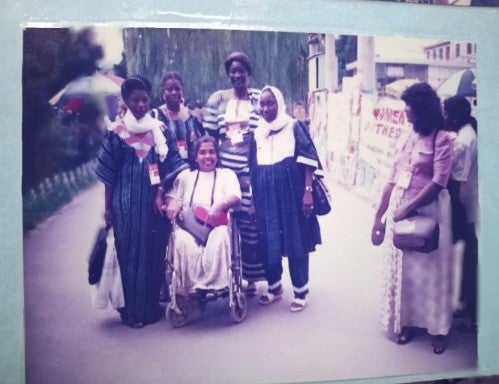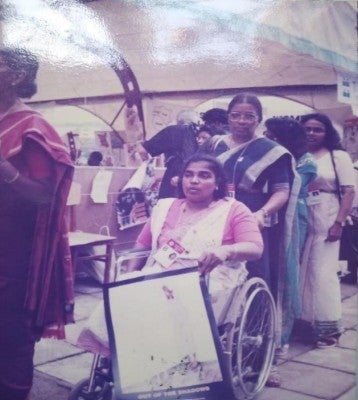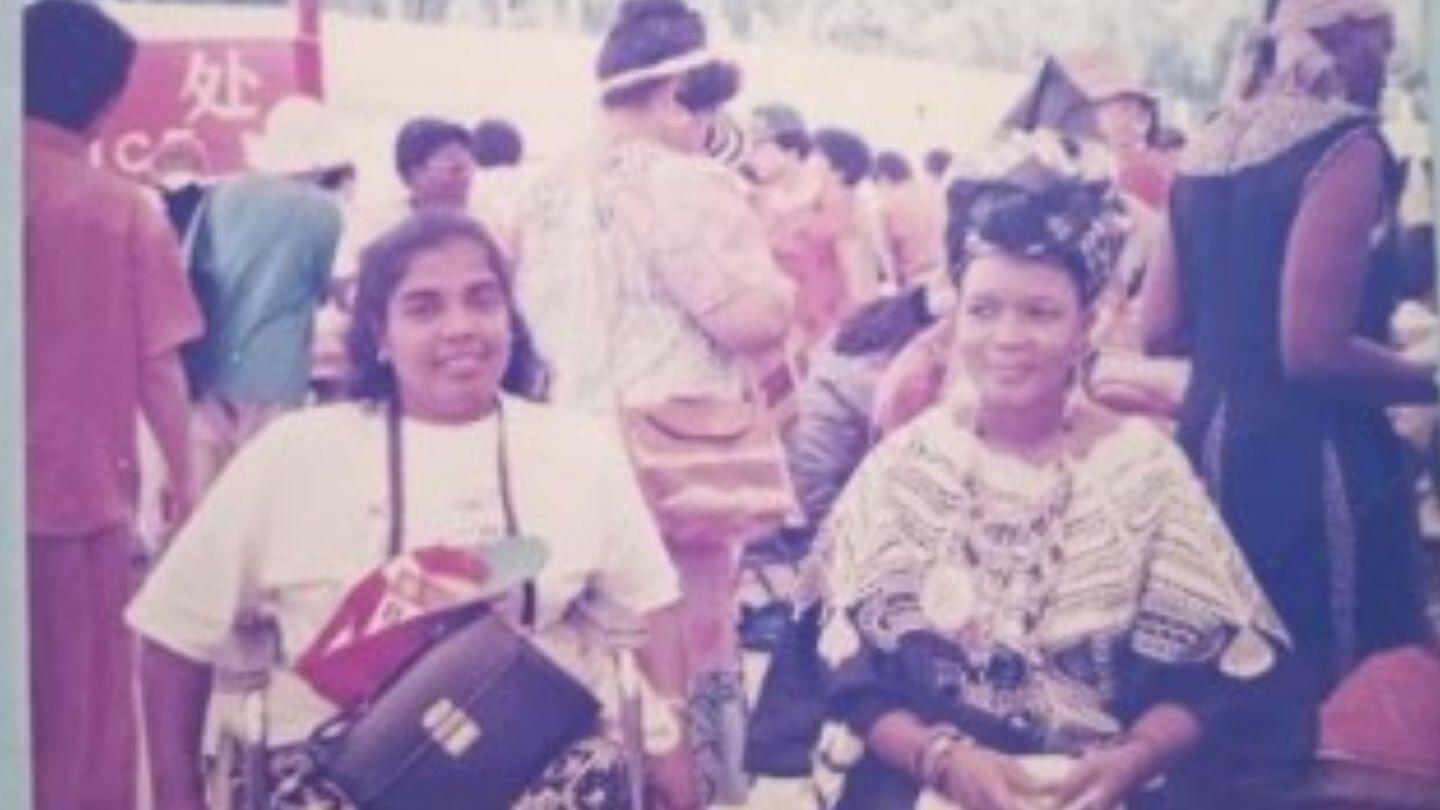By N.G. Kamalawathi
Chairperson, AKASA – Association for Women with Disabilities
Operator of the first safe house for women with disabilities in Sri Lanka, based in Thalawa, Anuradhapura
“Born into a low-income family in a rural village, I moved to Colombo in 1983 in search of independence,” recalls N.G. Kamalawathi. “I had contracted polio as a child and used crutches to walk. Life as a young woman with a disability was full of challenges, and I knew I had to create my own path.”
What began as a personal struggle evolved into a national movement. Motivated by the daily injustices she and others faced, Kamalawathi co-founded the Association for Women with Disabilities in 1989. But the road was far from easy.
“We had the passion, but we lacked the experience,” she says. “It was difficult to sustain the organization in those early years.”
That changed when Kamalawathi met Ms. Sepali Kottegoda of the Sri Lanka Women’s Union. Through her support, Kamalawathi was selected to attend the landmark 1995 United Nations World Conference on Women in Beijing—a turning point in her life and advocacy.
“The Beijing Conference opened doors I never imagined. I met women with disabilities from around the world. I saw what was possible,” says Kamalawathi.
She returned to Sri Lanka determined to restructure and expand her organization. On 30 December 1995, she formally re-established it as AKASA—the Association for Women with Disabilities—with just 36 members.

From 36 to 2,000: A Movement Grows
Today, AKASA boasts over 2,000 members and operates at rural, sub-regional, district, and national levels. The organization focuses on securing rights, access, communication, and opportunity for women with disabilities across the country—particularly in the North Central Province.
Since 1998, AKASA has delivered services valued in the millions annually and is trusted by local and international partners alike. Its achievements include the establishment of Sri Lanka’s first shelter for women with disabilities—a collaborative effort with the Government and UNFPA, which supported its refurbishment and expansion.
“Our shelter provides safety, dignity, and care for women who have been left with no support system,” says Kamalawathi.
A Legacy of Advocacy and Recognition
For her unwavering commitment, Kamalawathi has received numerous honors, including the Presidential Award for a Disabled Woman and an Award from the British Parliament for protecting the rights of disabled women.
“Beijing was more than a conference—it was a catalyst. It gave me the tools, the connections, and the motivation to keep going,” she reflects.
“Women with disabilities deserve equal rights and opportunities, just like anyone else. That belief continues to guide everything we do.”
With Gratitude
Kamalawathi credits her journey to a network of dedicated advocates and opportunities made possible by international platforms.
“I offer my heartfelt thanks to Ms. Sepali Kottegoda, the Sri Lankan Government, and the Beijing World Women’s Conference. They gave me a stage—and with it, the strength to carry others with me.”



